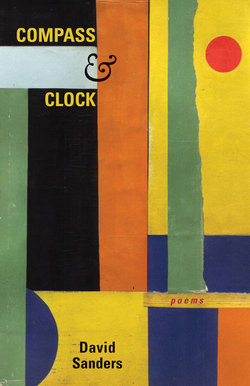Читать книгу Compass and Clock - David Sanders - Страница 9
На сайте Литреса книга снята с продажи.
ОглавлениеThe Mummy’s Curse
“We’d settled in to watch The Mummy’s Curse,”
the pastor at my father’s funeral
informed us, speaking of his Dublin youth
and to our fear of everlasting life.
A silent film projector that his uncle
owned was set up in the front hall parlor
where everyone could see. They drew the shade,
a makeshift screen, which blocked the city lights,
and waited to be scared. When soon, undead,
somnambulant, the mummy left its tomb,
trailing its banners of embalmer’s gauze,
the room filled with expected gasps and shrieks.
“But then we heard these otherworldly moans,
and more with every step the monster took.
The moans grew loud—a chorus from beyond.”
They pushed the bravest of them out the door
and there he saw, like frozen carollers,
some passersby who, mesmerized in fright
by what they witnessed played out on the shade,
shared in the fear of those who watched indoors:
all scared of what was on the other side.
“But that was death made animate,” he said,
“and rightly feared, not any kind of life.”
That was in Florida, my father’s final home.
The pastelled friends, whom he had hardly known,
had come to pay respects. The following day,
we took him north, to where we used to live.
Once, since then, I had some business there
and made a side trip back to tend the grave.
Recent rains had soaked our family plot,
a low spot in the village cemetery
where the marker sat, a small boat moored
amid a large and motionless flotilla.
But there would be no rising from the dead.
I thought of what the pastor had implied,
and what my brother, later, graveside, said,
whispering, “Everyone we knew is here.”
To prove him wrong, I shook the spring chill off
and stuck a flower in the muck before
I drove away to look for those I knew
had staked their claims not far from here and where
I’d seen them last, when we were all still young
and on the cusp of things not named or known.
The maple-lined road I’d driven countless times
strobed in flickering bands of sun and shadows;
familiar houses shrank behind additions.
I had my bearings then that day but no
directions, and I wound up out of town
at an orchard farm I’d known of as a boy
to see if they might have the lost addresses
of those who in my mind were so nearby.
The woman working the syrup and cider shop
looked up and asked me how I was. “I’m fine,”
I said. “We haven’t seen you in a while,”
she grinned, telling me her maiden name.
And then I understood the sculptors’ claim
of finding the shape within the stone, and saw
the girl I’d known twenty-five years before.
We talked a while about our lives, our jobs,
before she told me where I had to go.
But even now I can’t get past the fact
she recognized without a moment’s thought
my face unseen by her since I’d left school.
I, who traveled far afield, put streets
between us, languages and lives and years,
returned to her and to the rest, no doubt,
untouched by time. The change was theirs, it seemed,
incremental as an orchard’s growth,
but real. And I, like the unlucky dead,
would gladly move among them as their own.
